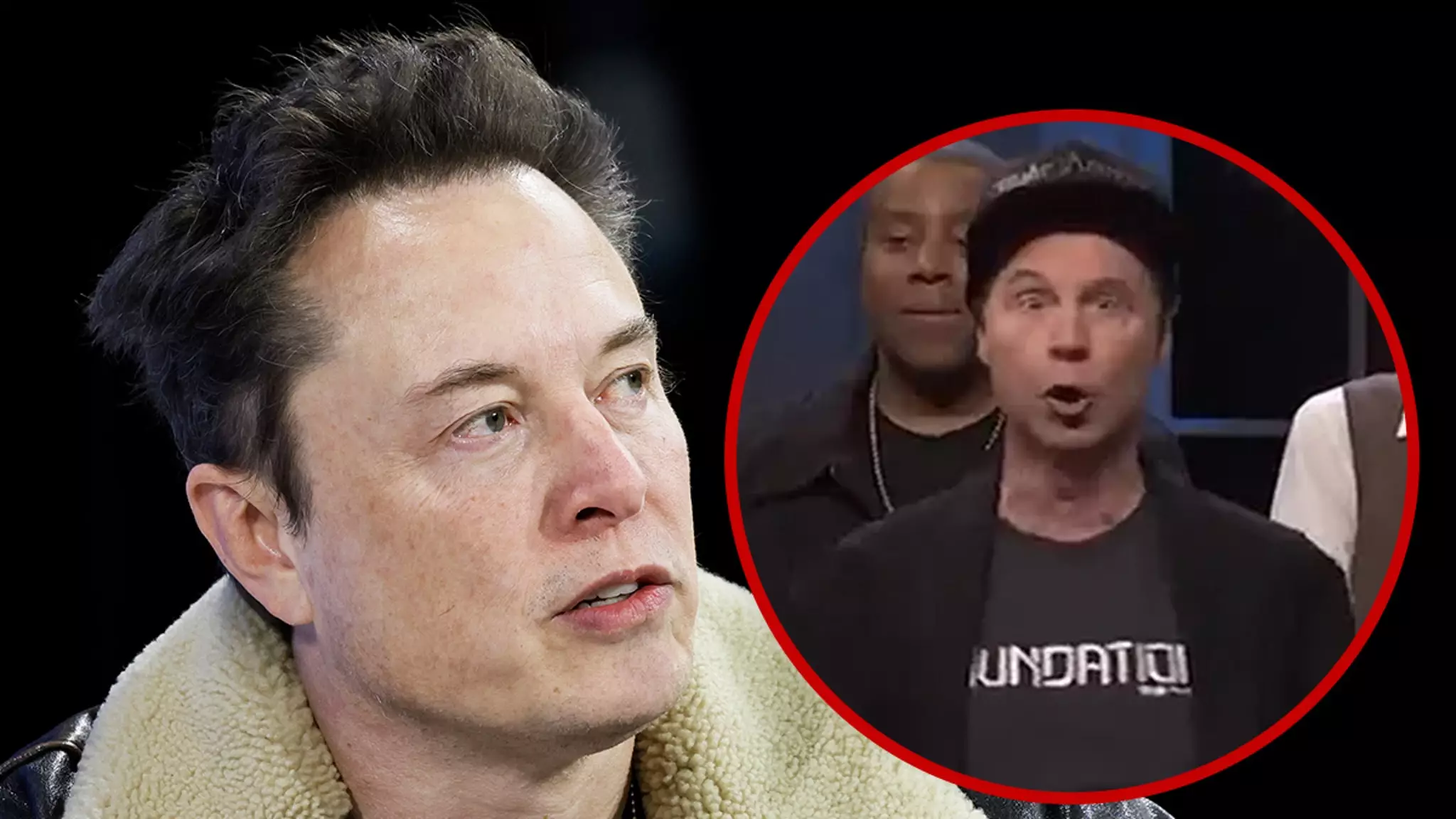In recent events, Elon Musk has stirred the pot once again, this time through a public rebuttal of “Saturday Night Live” following a segment that saw comedian Dana Carvey impersonate him. The comedic portrayal took place during a politically charged cold open featuring cast members expressing their supposed loyalty to Donald Trump, which led to Musk’s sharp criticism of their performance. While impersonation is a long-standing tradition in comedy, Musk’s reaction highlights a strained relationship between him and the late-night show.
The skit in question presents a satirical take on the political tensions surrounding the 2020 election, with cast members hilariously claiming their unwavering support for Trump. Kenan Thompson’s comedic quip about escaping to Mars with the Tesla CEO served as a segue into Carvey’s appearance. Clad in a costume reminiscent of Musk, Carvey infused the routine with exaggerated antics, poking fun at SpaceX and adding a layer of absurdity through dance moves. Such skits often aim to generate laughter through caricatured portrayals of public figures, but Musk’s perception of the performances reveals a deeper animosity towards the negative connotations attached to his persona.
Musk’s reaction was notably dismissive, interpreting the cast members as “sore losers.” His laughter at their apparent frustration over Trump’s victory suggests a certain schadenfreude on his part. This sentiment also reveals Musk’s own political inclinations, as he has openly supported Trump and even anticipates a role within the next administration. The relationship dynamics between Musk and “Saturday Night Live” are further emphasized by this exchange; he appears more interested in preserving his personal narrative than participating in the comedic dialogue.
As Musk continues to find himself intertwined with the political arena, he seems poised to act as a polarizing figure. Critics and supporters alike analyze his relationships, most notably with Trump and by extension, the political satire of shows like “SNL.” Given Trump’s statements about Musk potentially playing a role focused on “cost-cutting,” one wonders how these connections may evolve. If Musk indeed becomes an integral part of the administration, we may see a shift in how he interacts with the media and, particularly, late-night comedy shows.
Looking forward, one can predict that the comedic landscape will not shy away from lampooning Musk. Given his controversial opinions and a personal brand that often courts controversy, the likelihood of ongoing impersonations remains high. Musk’s strong reactions to comedic portrayals could ignite a new wave of satire, potentially resulting in a feedback loop between public perception and comedic interpretation.
The interaction between Elon Musk and “Saturday Night Live” exemplifies the complex interplay between public figures and satire, especially within the context of polarized political dialogue. As Musk navigates his ambitions and the scrutiny that comes with them, the comedic world will undoubtedly continue to reflect and exaggerate his narratives. Whether this will further strain his relationship with the media or allow for a richer comedic well to draw from remains to be seen.

Leave a Reply